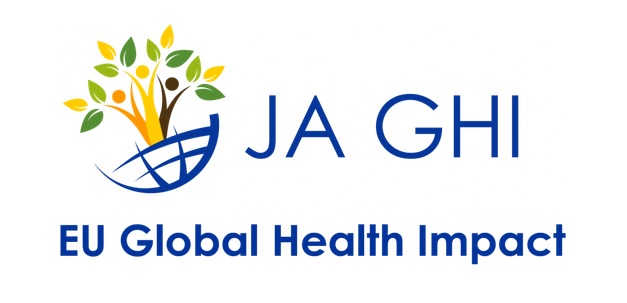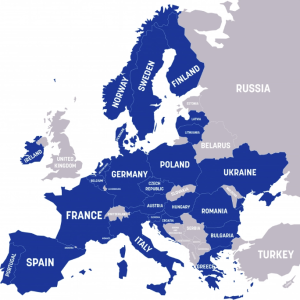JA GHI
European Joint Action to maximise the impact of the EU Global Health Strategy
European Joint Action to maximise the impact of the EU Global Health Strategy
“The project’s importance lies in implementing and improving national health policies in the field of global health. It provides access to current information, the latest expert findings, and best practices, which are key to enhancing the functioning and efficiency of the national health system.”

Project acronym: JA GHI
Project webpage: https://ja-ghi.eu/
Global health is a research and applied field focused on ensuring health for all people worldwide, regardless of socio-economic or geographic position. While some initiatives primarily address developing countries, most tackle transnational issues affecting people across different nations. Since health knows no borders, global health is a priority for the European Union (EU) and the entire world. On November 30, 2022, the European Commission adopted the EU Global Health Strategy (GHS) to achieve sustainable development goals. The GHS priorities include improving human health at all life stages, strengthening health systems, and preventing and managing health threats, including pandemics.
The main objective of the JA GHI project is to increase the impact of the EU GHS by developing mechanisms that enhance understanding of the existing efforts and strengthen synergies between EU institutions and member states.
The project includes 27 tasks within eight work packages. The first four are administrative (project management, evaluation, dissemination), while the other four focus on project content (analysis of key measures, information exchange, strengthening external communication, proposal forums). Online weekly meetings enable continuous and effective cooperation among participating countries.
Within the JA GHI project, we will review the global health sector in Slovenia by identifying stakeholders involved in global health and revising data sent to key European and global organizations. Participation in this project, with active involvement from 27 countries, facilitates the exchange of valuable experiences and the establishment of important international partnerships. The JA GHI project will also enhance the reputation and visibility of the National Institute of Public Health, increasing its impact both nationally and internationally.
The project is crucial for implementing and improving national health policies in global health, providing access to current information, the latest expert findings, and best practices, which are key to enhancing the efficiency of the national health system. In the future, it is essential to continue thoroughly analyzing data and strengthening cooperation between countries and organizations in the global health field.
As part of Work Package 5, we will develop a model for dynamic analysis of key metrics and financial efforts of the EU and its member states in the field of global health. Additionally, we will create an online tool based on this analysis to monitor the implementation of the Global Health Strategy.
Under Work Package 6, we will establish informal channels for active data exchange, focusing on key meetings, insights, and strategic messages between the EU, member states, and other stakeholders in global health (Geneva, New York, and Brussels). Utilizing a digital platform, we will facilitate information sharing among member states, the European Commission, and the European External Action Service (EEAS).
Within Work Package 7, we will review existing communication plans among EU countries, identify key organizations involved in global health within and outside the EU, and define communication channels between these organizations and member states. We will develop an External Communication Plan (JA GHI External Communication Plan) to support EU communication related to the Global Health Strategy.
Under Work Package 8, we aim to enhance the impact of EU measures through the establishment of a Proposals Forum, engaging global health experts from member states. We will conduct interviews with key non-EU stakeholders in global health, as well as with EU and non-EU stakeholders in other sectors such as biological and/or chemical weapons control and disarmament, climate change, veterinary, and environmental health.
Project duration: October 1st, 2023 – Septemeber 30th, 2025
Project manager at NIJZ: doc. dr. Branko Gabrovec
Carrier organization: Ministère de la Santé et de la Prévention, France
Project partners: 39 partners from 24 European countries

Funding: The project is co-financed by the EU under the health program, based on grant agreement no. 101140722. The views and opinions expressed are those of the authors and do not necessarily reflect the views and opinions of the EU or HaDEA. Neither the EU nor the grantor is responsible for them.
